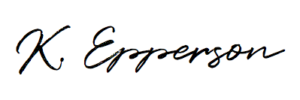Happiness is Overrated. Here are 5 Reasons Why.
Everyone wants happiness, right? To be truly happy, now that’s a goal worth having. Do what makes you happy.
Actually? Happiness is overrated. Here are 5 reasons why:
Unhappiness can lead to growth.
In 2006, my father was experiencing flu-like symptoms. This went on for weeks. He couldn’t seem to shake it. Then he started having night sweats. After a while, he went to the doctor to figure out what was going on.
He was quickly diagnosed with Non-Hodgkin’s lymphoma.
Those unpleasant symptoms led to his diagnosis and treatment. If he had not experienced those symptoms, he would never have sought medical attention. And he most assuredly would have died, as a result. He lived an additional 14 years without one recurrence of lymphoma.
Much like physical symptoms help our bodies realize something isn’t right, our mental unhappiness can help us realize that something is off in our lives.
Sometimes the change needed is external. Perhaps we need to change our environment, our job, or where we live. But sometimes, the change is internal. Maybe we need to change our attitude about something. Maybe our spiritual life needs nourishment. Perhaps we need to seek counseling.
(As an aside, I’m a big proponent of counseling, and not just for “crises.” Sometimes you can have a wonderful life and just need an outside perspective. Counseling is great for those times.)
Unhappiness can be a good warning signal that something is out of alignment. In those times we need our unhappiness to help us grow.
Unhappiness can lead to gratitude.
Last winter, we traveled one weekend to visit family. When we came back home, we returned to below freezing temperatures… and a broken thermostat. Our house was around 50°F, and it would only go down from there.
Needless to say, I wasn’t happy.
But with the help of local friends (and just wonderful people), we not only got our heat restored, but we were able to function in the meantime. But the day we got our thermostat fixed, I’ve never been so grateful for heat. It was glorious.
But I was grateful for other things, too. I was grateful for those who had come to our rescue. I was grateful for the adventure and story that came out of the whole ordeal. My daughters slept in the bed with my husband and me to conserve heaters and stay warm. It was the most miserable night of “sleep” I’ve ever had. But those memories? They’ll last forever.
That short period of unhappiness led to some good memories and a lot of gratitude.

Happiness is temporary.
“Happiness is a mindset.” “Choose happiness.” “Happiness is in your control.”
I appreciate the value in these statements, because there is certainly truth in them. However, those statements can only go so far.
The fact is, everyone has bad days. Those are influenced by a lot of factors. And in those moments, it’s not your job to “will yourself” to be happy. The happiness will come again. It’s okay that it’s not there at the moment. Just make the best decisions you can in the moment and let the emotions follow at their own speed.
Case in point: Let’s say you have a chronic illness. You wake up in the morning with a lot of pain. It’s not going to be a good day, physically. You probably aren’t going to be “happy” in that moment. And that’s okay. If you feel guilty because you’re not happy about your pain, then you’ll end up feeling even worse.
Our goal isn’t to be happy at all times. Our goal is to say, “I’m not happy right now. But I know that in the end, it will all be okay.”
It’s easy to mistake other emotions with happiness.
We are experts at self-deception. Sometimes we trick ourselves into thinking we’re happy, when it’s actually something completely different.
Infatuation, feeling flattered, excitement, lust, a sugar-high, safety, comfort, all of these can easily be misconstrued as happiness. They’re not the same.
That’s why celebrities who are “so happy for the first time in my life” on the cover of a magazine one week “have been unhappy for a long time” two months later.
Not every positive emotion is happiness. And if we live our lives seeking the next hit of positive emotions, we’ll be disappointed and extremely unhappy.
Happiness is an outgrowth.
Seeking happiness is like quitting your job to go search for a pot of gold at the end of the rainbow. Happiness will come and go, but long-lasting contentment and purpose are within reach by living a meaningful life.
Happiness is not a goal… it’s a by-product of a life well lived.”
Eleanor Roosevelt
For those that like sports analogies, my husband coaches women’s basketball, and the team most definitely wants to win. But they do that by improving their skills and playing the game well. Winning is a by-product of perfecting your game, both mentally and physically.
So while I do wish happiness for you, I hope you experience something much better than that. I hope you find purpose, meaning, and conviction. If you find those things, happiness will take care of itself.
Happiness is Overrated. Here are 5 Reasons Why. Read More »












